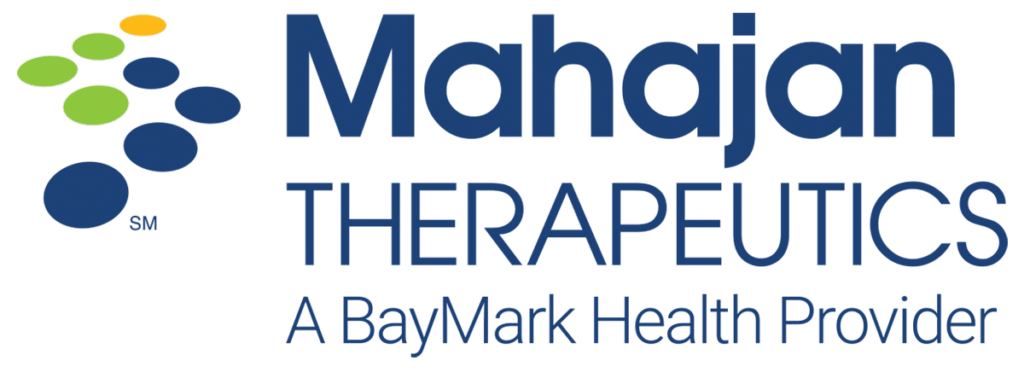If you’re dealing with a substance use issue or a mental health disorder, it’s essential to understand co-occurring disorders and addiction. These types of healthcare complications can make it a little trickier to find the right treatment and restore your health.
What are co-occurring disorders in addiction and mental health? This term refers to a person who has both mental health and substance use disorders. Since the complex interactions between both conditions require specialized care, it’s important to understand how co-occurring disorders work.
In this guide, we’ll go over the details of co-occurring disorders and help you learn about effective treatments for these conditions.
The Connection Between Co-Occurring Disorders and Addiction
In the substance use and mental health treatment fields, co-occurring disorders refer to situations where a patient has both substance use and mental health challenges. Roughly 21.5 million adults in the United States have some sort of co-occurring disorder. These conditions tend to interact with each other in surprising ways. Some patients may use substances as a way of coping with undiagnosed mental health problems. Others may find that their substance use results in mental health problems.
There are several reasons for co-occurring disorders to develop, including:
• Trauma
• Adverse childhood experiences
• Genetics
• Poverty
• Illness
• Environmental stressors
Ultimately, substance use and mental health issues can interact with each other in many ways. One problem can worsen the other, resulting in a negative feedback cycle where symptoms of both increase. Due to the interactions between different types of health problems, it’s essential to get integrated care for addiction that addresses all of a patient’s issues.
Common Co-Occurring Disorders
There are many ways that disorders involving mental health and substance use can overlap. Here are some of the most statistically common types of co-occurring disorders you should know about.
Depression and Alcohol
Depression and alcohol use disorder are one of the most common types of co-occurring disorders. This happens because alcohol is a depressant chemical that tends to contribute to the development of depression. People with a dependency on alcohol are 3.7 times more likely to have major depressive disorder than the rest of the population, and 63% of all people with an alcohol use disorder also have depression symptoms.
Anxiety and Opioids
Anxiety disorders are linked to a lot of different drugs, but one of the most common issues is opioid misuse. People who have anxiety symptoms are 5 times more likely to misuse opioids. Additionally, opioids tend to cause intense anxiety during the withdrawal stage. People who are physically dependent on opioids may find they have ever-worsening anxiety when they try to quit using these drugs.
PTSD and Stimulants
Post-traumatic stress disorder (PTSD) often has a lot of overlap with stimulant usage. A variety of stimulants, including methamphetamine and cocaine, have been associated with increased rates of PTSD. This happens because both trauma and stimulants trigger similar parts of the brain. Research has found that people are much more likely to develop PTSD if they are also using stimulant drugs.
Bipolar Disorder and Polydrug Use
Bipolar disorder tends to cause impulsive behavior and self-harming behavior, so many people with bipolar disorder end up experimenting with a variety of drugs. The higher rates of polysubstance use among patients with bipolar disorder are concerning because many drugs can worsen bipolar symptoms. People with bipolar disorder who use four or more drugs are more likely to have psychotic symptoms and manic episodes.
Challenges of Co-Occurring Disorders
The mental health and addiction connection is more than just a statistical curiosity. It also has a lot of serious implications for patients and caregivers. Co-occurring conditions typically mean that people require some extra care during treatment. Providers need to be aware of the challenges of living with co-occurring disorders.
Finding the Right Diagnosis
Getting a proper diagnosis is the first step toward getting proper care. Unfortunately, one of the challenges of addiction recovery with mental illness present can be getting a diagnosis. For example, a healthcare provider might not notice a patient with an alcohol use disorder has depression because they assume the person is simply sad about their substance use problems.
Getting Access to Proper Care
Treating dual-diagnosis patients requires a specialized blend of therapy and medication. Sadly, it can be hard to find the ideal treatment center near you. Addiction recovery programs aren’t always equipped to deal with serious mental health issues, and some psychiatric care units might not have the tools to help with substance use disorders.
Dealing With a Higher Relapse Risk
Due to how substance use and mental health disorders interact, relapse rates are often higher. Patients have more triggers that can encourage substance misuse. Furthermore, their substance use issues may mean they aren’t a good candidate for certain medications that can treat their mental health problems. Treating co-occurring disorders requires patience and the understanding that the journey may be longer than usual.
The Importance of Integrated Treatment Approaches
Now that you understand what co-occurring disorders and addiction are, it’s crucial to explore effective treatment options. Integrated treatment addresses both substance use and mental health conditions together, providing a comprehensive approach to recovery.
Key Elements of Integrated Treatment:
- Individual therapy to address trauma and addiction triggers
- Group therapy for peer support and shared experiences
- Medication-assisted treatment (MAT) for managing symptoms
- Holistic therapies (yoga, mindfulness, nutrition) for well-being
- Peer support programs for encouragement and relapse prevention
What to Look for in a Co-Occurring Disorder Treatment Program
Evidence-Based Therapy
Therapy is the most frequently used tool for both addiction and mental health disorders. This treatment involves talking about your thoughts and behaviors and working to improve them. Look for facilities that use therapies that are proven to be effective for your condition. Some essential therapies to look into include cognitive behavioral therapy, dialectical behavioral therapy, motivational interviewing, and trauma-informed care.
Family Support
If you have interested family members, make sure to select a program that will include them in the recovery process. Having support is an invaluable way of helping you to heal. Many people will benefit from family therapy that teaches people to support each other without enabling or taking advantage of each other.
Holistic Care
Holistic care is a type of treatment that focuses on improving your entire well-being. Instead of just emphasizing a single detail like maintaining a set amount of sober days, holistic treatment helps you rebuild your life. Look for programs that offer healing options, like art therapy or sports therapy, and seek out programs that provide practical advice such as job-seeking classes.
Long-Term Support
Because people with co-occurring disorders have a higher risk of relapse, it’s important for them to get support for as long as possible. Make sure your program doesn’t end the second you step out of inpatient therapy. Instead, you can benefit from treatments that involve aftercare and help you ease back into living normally.
Tips for Managing Co-Occurring Disorders
Co-occurring disorders are certainly complex, but they don’t have to be overwhelming. There are many effective methods for treatment and relapse prevention in dual-diagnosis patients. Here are some key tips:
- Understand the connection between addiction and mental health.
- Seek treatment early for both conditions rather than addressing them separately.
- Avoid self-medicating with substances to cope with mental health issues.
- Work with professionals who specialize in dual-diagnosis care.
- Set realistic recovery goals focusing on progress, not perfection.
- Prepare for setbacks and understand that recovery is a journey.
- Build a support network of family, friends, and mentors.
Find Treatment with Mahajan Therapeutics
Ultimately, substance use disorders and mental health disorders can have a lot of overlapping symptoms and triggers. Millions of people have co-occurring disorders that can make symptoms of each issue worse. While these conditions are complex, there is hope for those dealing with co-occurring disorders.
By treating both mental health issues and substance use disorders at the same time, providers can address the unique ways they interact with each other. Dual-diagnosis care helps people unpack the root causes of their addiction and find appropriate ways of addressing mental health issues.
If you or a loved one is struggling with co-occurring disorders, contact Mahajan Therapeutics for compassionate, evidence-based care.

